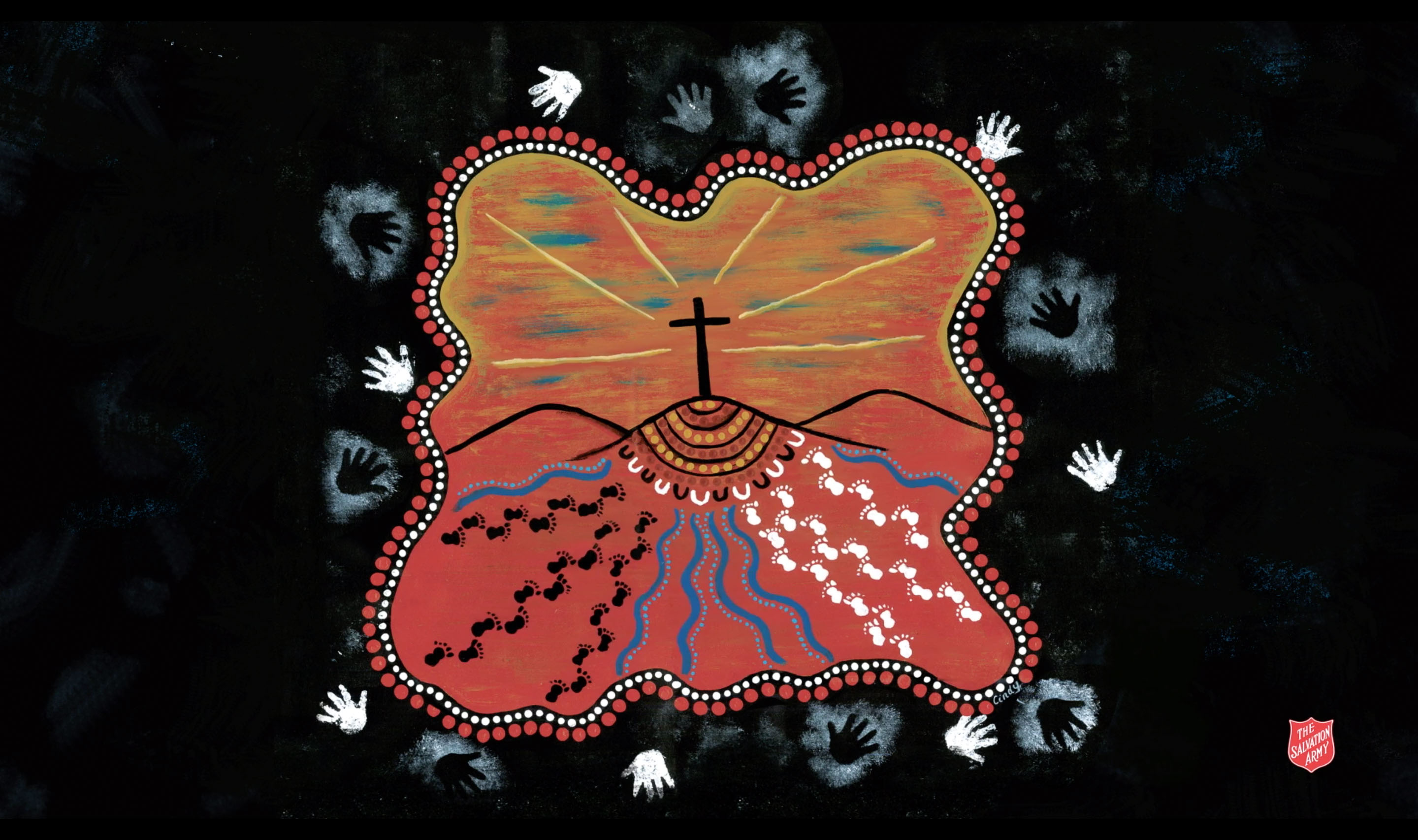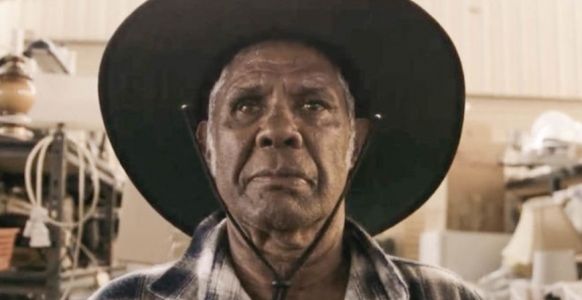
Reconciliation Week 2020
National Reconciliation Week 2020
National Reconciliation Week (27 May – 3 June) is providing opportunities for The Salvation Army to hear the voices of Aboriginal and Torres Islander people within the Army and the community. With the development of a new Reconciliation Action Plan (RAP), Salvos are working hard to further reconciliation based on a platform of trust, mutual respect, cultural sensitivity and understanding.
While the National Reconciliation Week theme this year – ‘In this together’ – was chosen before the COVID-19 pandemic, never have the words been truer. We have seen a concerted effort across the country and throughout Salvation Army missions to support and protect First Nations people (considered at high-risk) during this pandemic.
“Everyone is important,” says Shirli Congoo, The Salvation Army General Manager, Aboriginal and Torres Strait Islander Ministry. “But we have been overprotective of our Elders as they are the link to our past – and also to our future. If we protect them, we protect our culture, our identity and our languages.”
For Uncle Vince Ross – Madi-Madi man, convenor of the Aboriginal and Torres Strait Islander Advisory Group and a national elder with the Salvos – reconciliation means building real relationships or, as he puts it, ‘Christianity with our sleeves rolled up’ .
“We have a lot of Aboriginal and Torres Strait Islander people that come to the Salvos through our different mission expressions – our corps, Salvos Stores, Doorways, and AOD (alcohol and other drugs) services,” he says. “We need to listen and get to know them.”
Story sharing key to reconciliation

Uncle Peter Hyde is a Salvo and traditional owner of the Yidinji tribal land in Far North Queensland.
A member of the Gimuy Walubara peoples, he speaks to school students about the origins of the land they walk upon.
“I teach the kids my language and corroboree,” he says. “I tell them what my dad told me – how to cook, how to behave myself and how to dance.”
At the age of 62, Uncle Peter hit a rough patch in his life and struggled with alcohol addiction. Sent by Centrelink to work at The Salvation Army Red Shield Family Store in Cairns, he poured himself into the job. Unexpectedly, he found common ground with the staff – particularly Alison Geno, the store manager and attendee at Cairns Salvos.
“I met those people there and we started talking, so when I went a bit off-road [I knew I] had a friend,” he says. “I told them I was a traditional owner, and we talked a bit of language.”
Uncle Peter promised to come along to a Sunday service at Cairns Salvos where he learned there was much more for him to give. Befriending Corps Officer Major Ben Johnson, who he calls ‘Brother Benjamin’, Uncle Peter shared generations of stories with his new family, just as he had done at schools. Soon, he was journeying with Ben to volunteer in the community, welcoming guests from Papua New Guinea to the corps, and embracing the many diverse peoples with a welcome to country, traditional music and art.
“Reconciliation in the Church is not overtaking God; it’s not getting away from God. It’s really good for the soul,” says Uncle Peter. With a renewed heart and mind, Uncle Peter is modelling what it means to be reconciled to God, land and one another, one story at a time.
Salvo leaders’ commitment to RAP
Salvation Army leaders Janine and Robert Donaldson officially launched the development of a national Reconciliation Action Plan (RAP) on 26 May 2020, with a firm commitment to build trust and respect for the mutual flourishing of indigenous and non-indigenous Australians.
To achieve this goal, RAP Project Development Coordinator, Lucy Davis, is connecting with Salvation Army programs and services through a series of virtual yarning circles around Australia from 15 May until the end of July.
“The yarning circle is a sacred space, used by Aboriginal and Torres Strait Islander peoples for generations,” says Lucy. “This is a place where all voices are equally respected and heard. There is no authority in the circle. Everyone takes turns. It’s an open place to share.”
The yarning circles will hear the diverse voices of First Nation peoples, leaders, corps and others connected with The Salvation Army, to help provide a framework for supporting national reconciliation. This will include plans for how The Salvation Army will continue to develop respectful relationships, create meaningful opportunities and make spaces culturally safe for Aboriginal and Torres Strait Islander peoples.
“We’re in this together and we want to hear everyone’s contribution to this yarn and the journey of reconciliation,” says Lucy. “Through this, our collective voice really will be the foundation for our national Reconciliation Action Plan.”
Lucy added: “We expect the RAP to put forward a number of different goals for making The Salvation Army, not just a safe place culturally, but a place where Aboriginal and Torres Strait Islander peoples feel comfortable, accepted, engaged and able to access services.”
Listening to the voices of the past, present and future
As a faith movement, The Salvation Army is committed to engagement in National Reconciliation Week and the process of reconciliation through social justice, equity and freedom.
We aim to respect, value and acknowledge the unique, histories and languages of the oldest surviving culture in the world and to engage in a unified and positive relationship with Aboriginal and Torres Strait Islander peoples and their communities.
In doing so, Salvos will walk alongside the Indigenous peoples of this land to improve outcomes through our social programs as we develop our national Reconciliation Action Plan.
The journey to developing the RAP document is the most important ingredient,” says Shirli Congoo. This is where we come together as one to listen, to share and to hear the diverse voice of the Army to sow the seeds of being in this together.”
Uncle Vince Ross sees a positive way forward from here where trust and confidence is built in our relationships, so that we can act in healthy ways. As we discover the truth together, listen to each other and build relationships, we can put this into action across Australia, working collaboratively together as partners in our local communities.
Stories first appeared in The Salvation Army’s online magazine Others.org.au